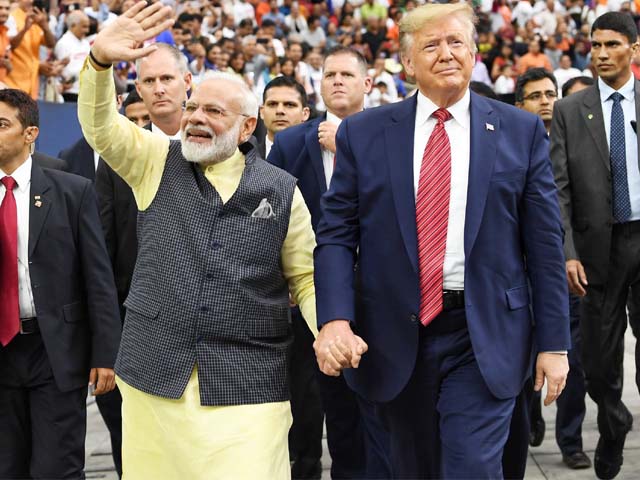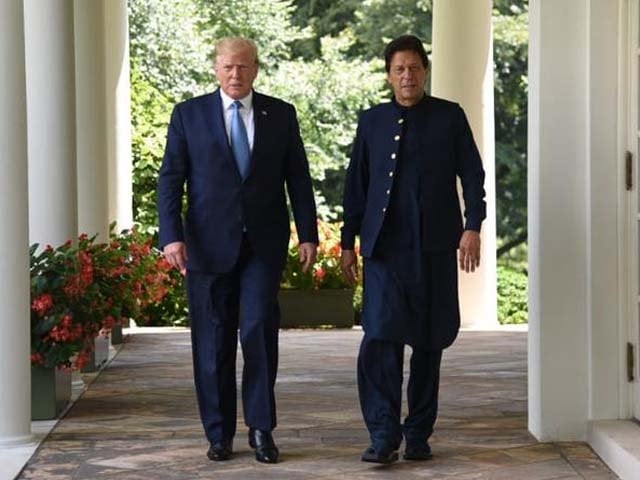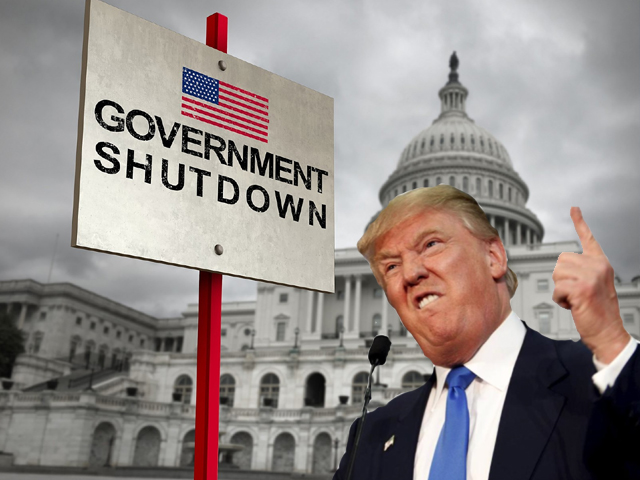
Pakistan's unstable, schizophrenic relation with Afghanistan
Pakistan and Afghanistan must sit together, go back to the drawing board and reprioritise.
Pakistan and Afghanistan enjoy a ‘brotherly’ relationship that is nothing less than a theatre of the absurd. It has had its highs and lows and has had moments when people have scratched their heads and wondered about the emotionally unstable, schizophrenic handling of bilateral affairs by their erratic and volatile leaderships.
With an extremely porous, almost non-existent border featuring a treacherous terrain of hills and rugged mountains standing between the two countries, the people of both lands have endured hard times since decades now. As if the Soviet invasion of Afghanistan in the late 70s was not enough with a massive influx of refugees spilling into Pakistan throughout the 80s, events that followed later on essentially ruptured and devastated any prospects of mutual respect and trust.
Afghanistan being what it is – a glorified tribal area – has not gelled too well with Pakistan’s regional strategy and inspirations. While Islamabad has capitalised on the instability of its western neighbour and was able to exploit circumstances and grind its own axe in the post-Soviet withdrawal period, changes beyond 9/11 in the international environment brought about painful transformational challenges that only aggravated matters with whoever ran affairs in Kabul.
In a word, from patronising and sheltering the Hekmatyars, the Rabbanis, the Taliban, the al Qaeda and from actively playing the role of a wheeler dealer in the politics of Afghanistan, Pakistan received an incredible pushback and tons of mistrust and disrespect from the country that was reeling under the pressure of war and trying to recover from the horrendous effects of loss of human life, hunger, starvation and trauma of never-ending conflict.
Pakistan and Afghanistan share remarkable commonalities in cultural, political, social and behavioural spheres. People on both sides of the divide are emotional, hot tempered, extremely generous and giving but not necessarily forgiving. Politically, they have, for the most part, been and remain in an almighty mess. The socio-cultural environment is imprudently obnoxious at times, which does not necessarily reflect on population mind-sets but there is not much to do for folks in terms of outlet or cultivating diverse interests. Young men and women end up indulging in pursuits that cannot nearly be regarded as accomplishments.
The Af-Pak region faces a serious threat to its existence, not an external one but an internal threat that comes in the shape of lack of education, ignorance, underdeveloped infrastructures, religious parochialism, bad governance, drought of committed leadership and most of all, subservience and dependence on foreign aid and assistance from major regional and international powerbrokers.
Under the given set of circumstances, there is so much for the two countries to do in positive terms. Both can contribute to each other’s wellbeing in more ways than one. And that is exactly what the Afghan president, Ashraf Ghani, seems to have in mind, i.e. Pakistan and Afghanistan forging a peaceful alliance and working toward eradicating the ill effects of years of animosity and dangerous trends.
Ghani was visiting the US recently and generally did not say much about his country’s rather tricky and sketchy relationship with Pakistan during the Washington leg of his visit. He finally broke his silence when someone in the audience he was addressing at the Council on Foreign Relations in New York posed a question regarding the southern neighbour.
Ghani’s response was one of an articulate visionary when he said that he is ‘cautiously optimistic’ that Kabul and Islamabad have ‘begun a process of fundamental transformation’. This was a clear indication of the fact that he is weighing all his options, gazing through what has happened in recent years and not committing himself to an all-out onslaught of change and ‘friendly slash brotherly’ gestures based on the shallowness of hollow beliefs and ideals that eventually end up in non-productive, time wasting activities and vain and pompous breezy encounters.
This guy, Ghani, means business. He is sharp, quick on his feet, multi-faceted, a farsighted statesman and a tough cookie to deal with. Basically, he’s no dope. He knows what he wants and how to get it. Watch out Islamabad, GHQ and ISI!
With Ghani at the helm in Kabul, things may get a bit itchy and scratchy. The good news, however, is that he is yearning for a change, betterment and steadiness of relations. Coordination and harmonisation of efforts against radicals, destroying their safe havens in Pakistan, building bridges, highways and railroads is nothing sinful to talk about. The Pakistani leadership should welcome such a pleasant change of guard across the border, since unlike his conniving and foxy predecessor, Ghani at least sounds sincere in his intent to make a positive impact on the regional environment.
The fact that US troops will pull out by the end of this year, there is an incredible amount of opportunity for Pakistan and Afghan armed forces to join hands and work for peaceful coexistence without the interference of religious zealots. The Pakistani army has done a remarkable job wherever and whenever deployed to crush the radical nuts. One is sure that, if allowed, they can pass on the knowledge and share information with their Afghan counterparts.
Ghani has big plans for his country. The tenor, texture and tone of his trip to the United States were a testimony to the fact that he is ready to take Afghanistan’s population to the next level of conscientiousness and development. His ideas may sound a bit unrealistic but he did a great job in mesmerising his audiences here to convince them that he is ready to mastermind grand ventures of development and reconstruction.
For any meaningful dialogue and action to take place, Pakistan and Afghanistan must sit together, go back to the drawing board and reprioritise. Once that is done, reboot, re-cultivate, restructure and reconstruct. Obviously this is easier said than done. However, such measures are nothing but necessary.
The major powers cannot and will not stick forever. Foreign aid cannot keep flowing. Interfering in each other’s affairs will not fly. Dependence on intrusion by one as a means of destabilising the other will work for some time but will eventually have dire consequences, as we have quite clearly witnessed in the troubled decades gone by.
Cleansing, not literally but metaphorically, population is the need of the hour. Educate people, take them out of the hell hole of darkness and you will have an end product that is refined and ready to take on the world. Negotiate with arms dealers, drug peddlers and the warlords but not the damn Taliban or the mullahs. Incentivise them to give up their nefarious ways.
To substantiate my argument, I will give you a little example. I remember visiting Darra Adam Khel as a kid at the height of Soviet occupation of Afghanistan. I heard arms and ordnance dealers of that time openly and proudly showing their wares and telling us that they provide door-to-door service to buyers all over the world. At that time, the arms were mostly being directed to the so-called Afghan Mujahideen fighting the Soviets. Last time I checked, the town was still carrying on the business of manufacturing high grade, handcrafted weapons. Why can Pakistan not crackdown on such ‘ghettos’, use superior negotiation skills and talk the leaders of the town out of the craziness of weapon making?
This is a historic opportunity to clear the mess. If Ghani’s statements are to be taken at face value, they are worth in gold. His progressive ideas are infectious. Whereas one understands that the political rhetoric is usually nothing but a bunch of lies, if strong mechanisms of accountability are put in place and there are encouraging overtures from the other side for continued cooperation and harmony, there is no way why Afghanistan and Pakistan cannot move forward and quickly remove the demons of the past from the closet.
Af-Pak does not need a western or a major power handholding. All they need is a strong handshake and a solemn pledge to work together, shoulder-to-shoulder, forgetting about the historical trends and animosities and working towards a more versatile and compatible future.
As Ghani rightly pointed, Af-Pak leaders need “sufficient wisdom not to sink but to swim together”. I say opportunity is knocking at the door; the low hanging fruit of peace-making and rebuilding is up for grabs. All that is needed is bringing down psychological barriers and divisions.
I see Ghani’s ‘cautious optimism’ as a path leading to a bigger and brighter tomorrow for the people of Af-Pak. It would be nothing but appropriate for Islamabad to reciprocate Ghani’s gestures with a concrete set of proposals, a roadmap to bring to reality any possible prospects to build and create a momentum that can lead to a promising future. This is an initiative-taking moment and Mr Sharif and his team of advisors must get to work in a jiffy.
No one has a magic wand. All one can do is to carry on with good intentions, followed by robust energy to make a positive change. I remember Ghani being sceptical about foreign aid during his years at the World Bank. While this may not be the best time to break the begging bowl or show teeth to the financiers and money barons, it is the most appropriate occasion to start afresh and think on modern and progressive lines.
By being an honest partner in Afghanistan’s reconstruction process, Pakistan can not only build trust but also look at it as a healthy distraction, away from the muddled and convoluted hobnobbing that it keeps doing with India. Although it will not be easy to gain the Afghan trust, once it is established, there could be a million ways to take advantage and help Pakistani businesses, workers, craftsmen and entrepreneurs to carry on their activities across the border.
There is so much to say and a lot to do. One senses a positive change happening in Afghanistan. At our Navroz gathering recently, my Afghan friends expressed optimism and tremendous amount of hope that Ghani is the right person for the right job. He, however, cannot do it all himself and needs support to channel his energy and ideas into practical solutions. A big piece of the puzzle is Pakistan and how it reacts to the positive vibes coming from across the border. It is high time that sanity prevails and all concerned hunker down and work for the people of Af-Pak. This has been long overdue.
There is not much time to waste. The two countries are on the precipice of disaster. With a bit of soul searching, the sooner they start co-operating, the better it is for the generations to come. Too much has been lost. It is time to cut the losses and think outside the box. It is sincerely hoped that peace and salvation will bring about the much needed stability and prosperity for the millions who most definitely deserve a better deal.




COMMENTS (6)
Comments are moderated and generally will be posted if they are on-topic and not abusive.
For more information, please see our Comments FAQ